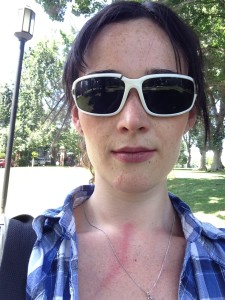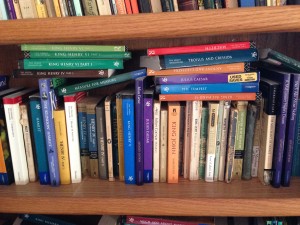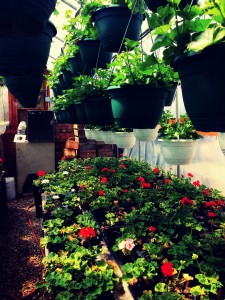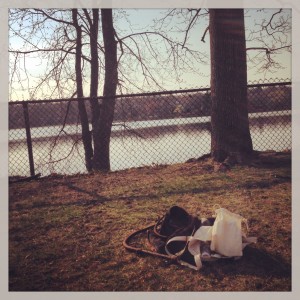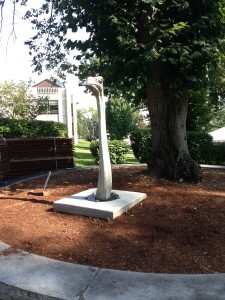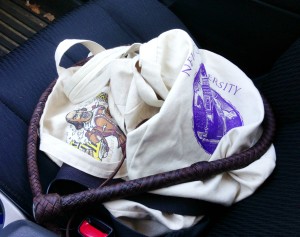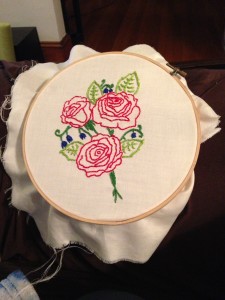Hello, all!
It being summer, it also happens to be a time of year when us educators are faced with the frustrating situation of explaining away certain myths about our jobs. One still prevalent is the “summer off”.
I know that the university calendar tells you that there’s no class over the three-month span between June and September. I am also aware that conventional ideas about summer equate to vacation, beaches, volleyballs, and children frolicking in fields of free time.
But let me assure you, simply because school’s out for summer doesn’t mean that we get “three blissful months” of sitting on our couches binge-watching Netflix. I can’t speak for everyone (especially because primary and secondary education are two different ballgames really). That said, I would like to give you a sense of what my summer, as an adjunct, a PhD Candidate, and a working artist, consists of:
I Write
So all that time during the “working semesters” when I’m not actually standing in front of a classroom teaching is generally reserved for teaching-related tasks. I have to prepare lessons, grade, deal with administrative issues, answer emails, meet with students, prepare exams, prepare projects, and monitor attendance (amongst other things). Since I am not in a situation where I am guaranteed work semester-to-semester, I also have to submit resumes, look for work for the coming semesters, and also work a few spare jobs on the side just to make ends meet. This means that my time to research and write is at a premium. As a PhD candidate, my primary focus needs to be finishing my dissertation. Summers mean that classroom-teaching-related-tasks go away and I can reclaim that time specifically for my dissertation project.
I Look for Work
As I mention above, I am not in a situation that guarantees work semester to semester (this is true for many adjuncts, by the way… having a long-term relationship with an institution makes your chances at acquiring work better, but does not guarantee you anything no matter how good you are at your job). This means that summertime is spent fervently applying to as many universities as possible hoping that enough of them will throw me a writing 101 or Theatre History class for the next semester. What with the way universities hire, I may not know whether I am, in fact, teaching a class until the week (or even days) before I step into the classroom. In some rare instances, I may be asked mid-semester to take over a class on a rush basis and come in same-day or next-day to teach someone else’s curriculum from someone else’s slides off of someone else’s syllabus.
I Work as Much as I Can
Since teaching as an adjunct is not a guaranteed thing, and since the pay is generally poor enough that eking a living out doing it is nearly impossible, I have several side jobs. During the summer, in addition to the above-tasks, I also take on as much extra work as possible in hopes that I can squirrel money away to pay bills should next semester prove a bit lean.
I Battle my Mental Demons
Dissertation work is very isolating. Since summertime means that campus is very empty and I’m not generally leaving my house on a regular schedule to teach or run errands, it also means that I have a lot of time to spend by myself with my thoughts and my work. This can lead to some very unhealthy mental habits and thought patterns including (but not limited to): workaholism, depression, anxiety, and the host of physical complications which come with these troubles. Because of items 1-3, summertime can be extremely tough on a PhD Candidate, and a great deal of maintenance is required to ensure that we keep ourselves healthy. For me, this generally involves a high level of athletic activity (I’m currently training for a half marathon and a Spartan race); running several times a week ensures that I have micro-goals unrelated to my stressors which I can accomplish, that I leave the house and get some vitamin D with frequency, and that endorphins give me a little boost when I need it. I can’t recommend some kind of intense physical training in combination with dissertation-writing more; it has seriously changed my Diss-game dramatically.
All of this is not to say that Dissertation work is not rewarding (it is) or that I am not lucky to be where I am with my career path (I am), but to ask you to think a bit about some harsh realities. Particularly before you remark to your teacher friends that they are so lucky to have the summer off, or that you wish you could have three months of guaranteed vacation every year.
And on that note, I suppose I should return to my top priority: the ever-present dissertation. Cheers, all! Stay cool!

